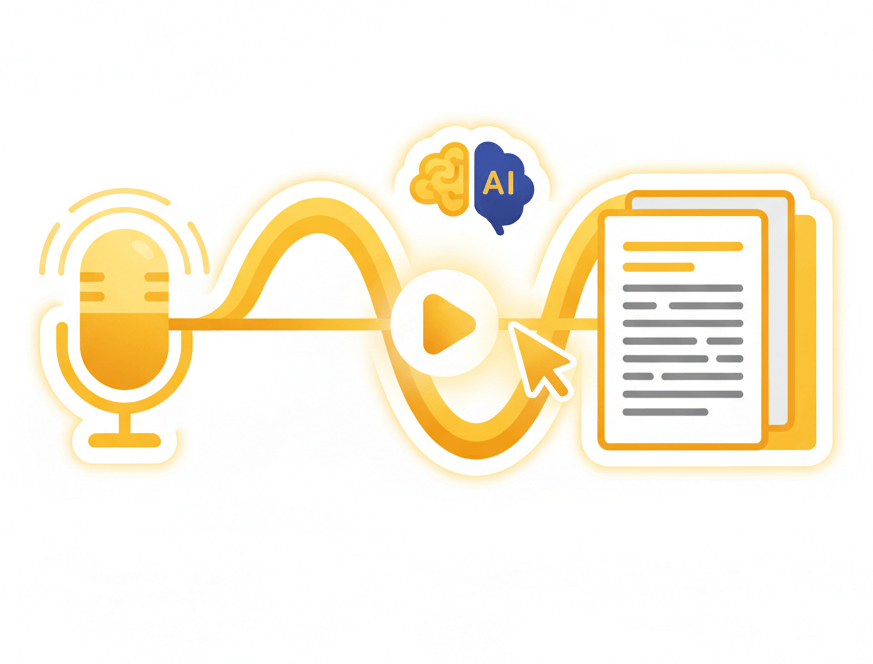
AI-powered SND file format conversion engine with multi-language support

Reliable processing of various SND implementations including Sun/NeXT audio headers and older proprietary encodings

Data hosted and processed exclusively in EU infrastructure with end-to-end encryption during transfer
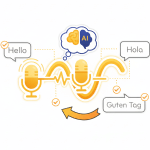
Automatic recognition of 30+ languages with dialect-aware models to handle diverse archived recordings
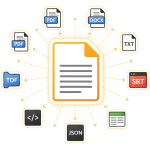
Convert SND to documents (PDF, DOCX, TXT), subtitle formats (SRT, VTT), or structured data (JSON, XLSX)
Extract text from .SND File in three simple steps
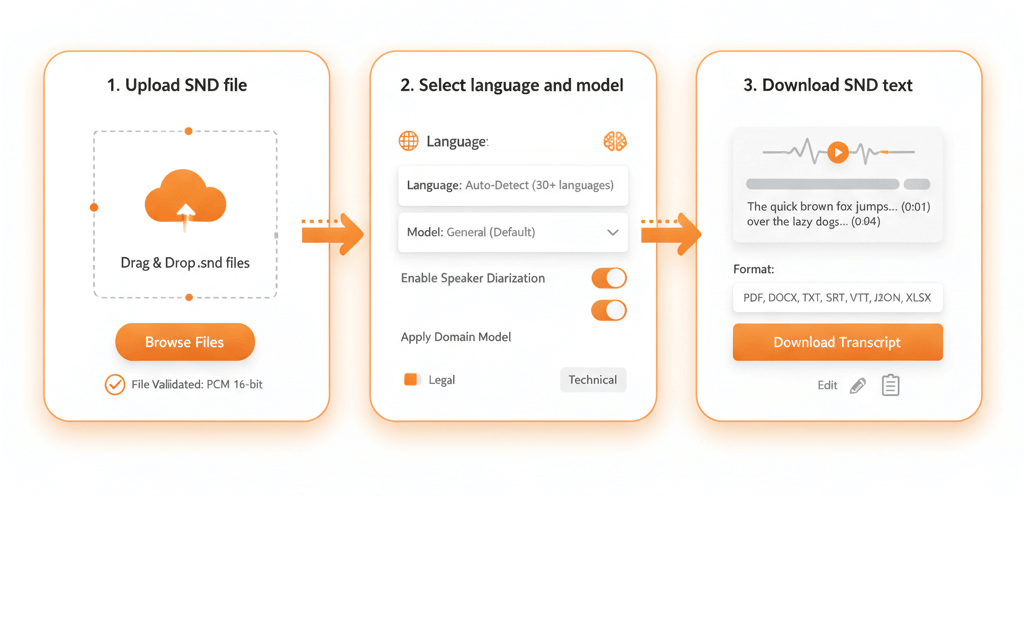
Drag and drop the .snd file or select it from local storage. The platform automatically validates the file header and sample format, supporting both 8-bit µ-law and 16-bit PCM variants commonly found in archived recordings.
Choose the spoken language or enable automatic detection. For specialized content, apply domain-specific speech models trained on technical, clinical, legal, or financial terminology to improve recognition of jargon and proper nouns.
Review the generated transcript in the built-in editor with inline playback controls. Make corrections if needed, then export as plain text, formatted document, timestamped subtitle file, or spreadsheet with speaker labels and confidence scores.
SND represents a family of uncompressed audio containers historically used on Unix workstations and classic Mac systems
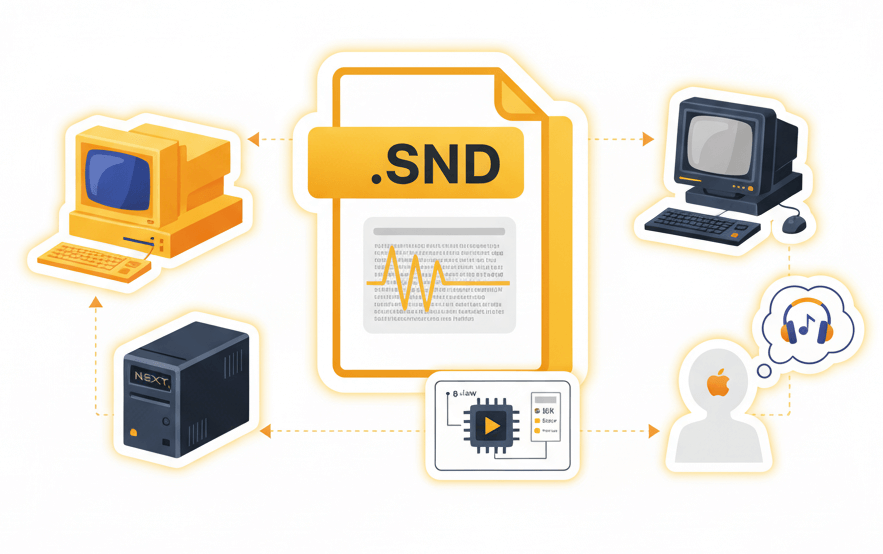
The .snd extension designates audio files created on Sun Microsystems and NeXT computers, or saved by older Mac applications. These files store raw audio data with a minimal header describing sample rate, encoding (often 8-bit µ-law or 16-bit linear PCM), and channel count. Many archived research recordings, digitized voice notes, and system sounds exist in this format.
SND files are rarely created today but frequently encountered in legacy archives, institutional repositories, and backup media. Researchers working with historical datasets, digital archivists migrating old collections, and engineers maintaining vintage systems may need to access the speech content locked inside these files. Modern workflows require converting SND to text to enable search and analysis.
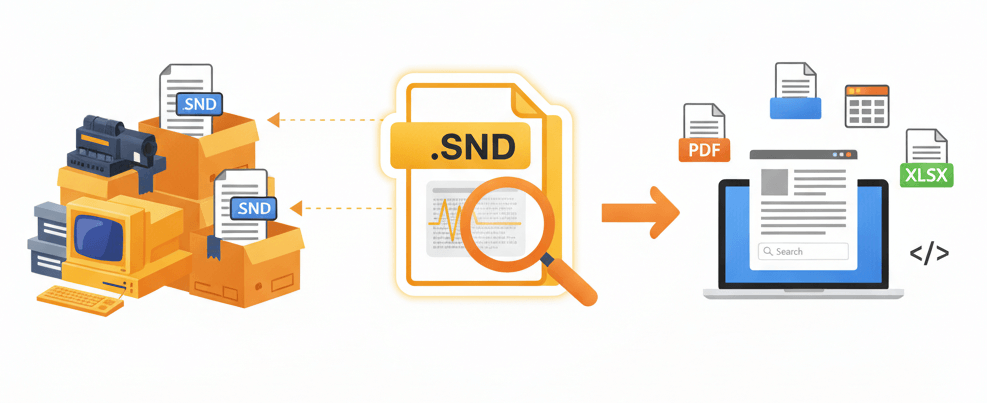
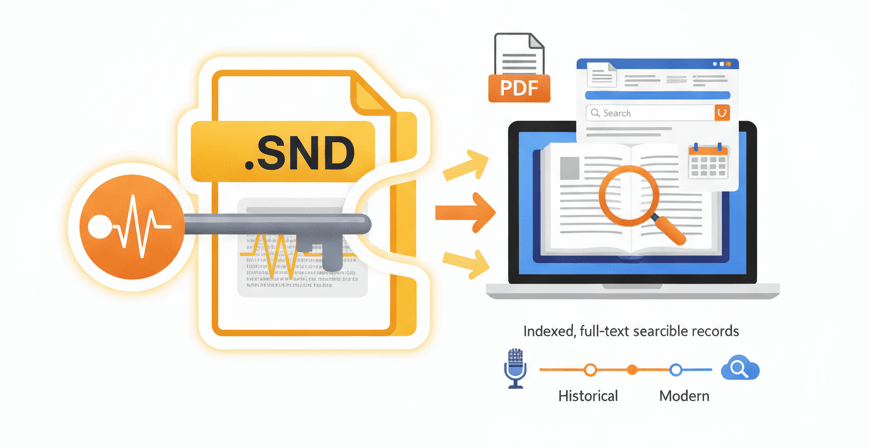
SND transcription unlocks decades-old audio collections for modern discovery and compliance. Institutions digitizing oral histories, legal depositions recorded on workstation systems, or medical case notes can transform inaccessible sound files into indexed, full-text searchable records. Transcripts enable keyword retrieval, citation verification, and integration with document management systems, preserving the informational value of legacy media.
Organizations converting archived SND recordings into actionable text for compliance, research, and preservation
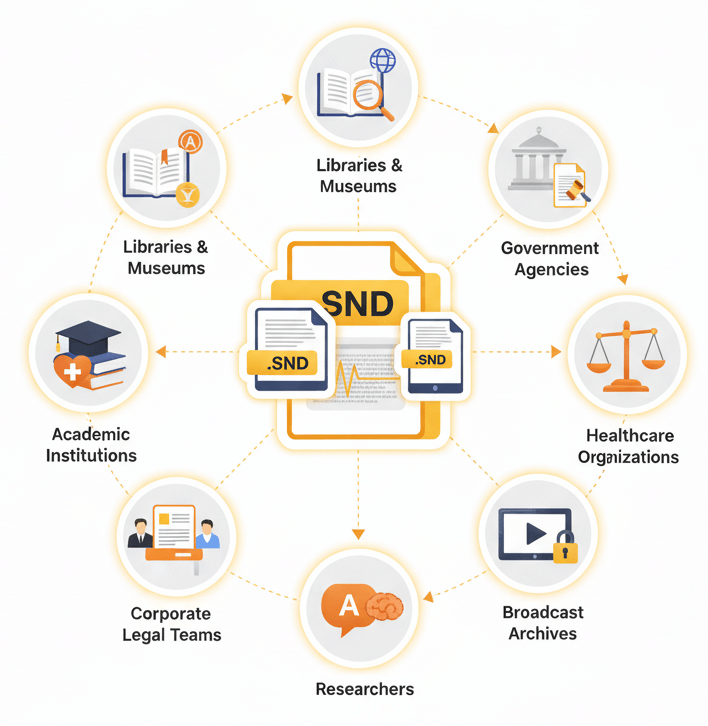
Open a web browser on the Mac, navigate to SpeechText.AI, upload the .snd file from Finder, select the language, then run automatic transcription. The service is platform-independent and requires no software installation on macOS or any other operating system.
SpeechText.AI provides a trial account that allows testing the full SND transcription engine without upfront payment. The trial includes all features: language detection, speaker identification, and multiple export formats, so the quality and capabilities can be evaluated before committing to a subscription.
Yes. After transcription is complete, select SRT or VTT as the output format. The engine automatically generates timecodes synchronized to the original SND audio, producing caption files ready for video editors, streaming platforms, or accessibility compliance.
The speech recognition models include noise suppression and gain normalization, which improve results for recordings with background hiss, low volume, or analog artifacts. Very degraded audio may still produce incomplete transcripts, but enabling domain-specific models and manual review can significantly increase usable output.